|

Dear BQ/QUBES Community,
Happy National Mentoring month!
Since Odysseus left Mentor in charge of his family, estates and his son, the art and science of mentoring has been critical to guiding career and educational development. Like Mentor, I aim to be a wise and trusted counselor, guide, guardian and teacher or as the title of the widely read book indicates, an Advisor, Teacher, Role Model, Friend. I have learned that mentoring is an alliance between people and that both mentors and mentees benefit from agreements about how the relationship will evolve and how to include social support, career development and growth. With faculty, graduate students and undergraduates, mentoring often involves getting to know the whole person, their aims and aspirations, their qualms about the future. Connecting students to the right resources or empowering them to bring up difficult questions with their faculty or research mentors requires that you be open, listen carefully, and know them as persons.
BioQUEST lessons on mentoring
So, folks, this is part of the BQ vibe. We mentor others and reward them. Check out our list of mentors, or read some BQ-origin stories. Here are a couple of BQ-inspired suggestions from yours truly.
-
Don’t wait to be asked to write a support letter or to nominate people for awards, from AAAS fellowships to awards for contributing to science education, or for new positions in NAS, AAAS, or national organizations. Ask them if you can nominate or support their pathway with letters. Then do it!!!
-
Encourage all of our participants to plan for the future
-
Support our community in writing grants, creating new projects and in career advancement
-
Invite people from a diversity of different backgrounds, disciplines, career paths, and institutions to participate and find ways to support them with money, advice and real community
-
Keep in touch with people even if they choose a different pathway
-
Student learning and success is central
-
Constructive disagreement and debate can help us all find new horizons
Three Suggestions for Celebrating Mentoring Month
Happy New Year!
Pat
Pat Marsteller
P.S. If you’re coming across this newsletter on the QUBES website or on social media, you can subscribe here to keep in touch!
In this newsletter:
BioQUEST News
Partner Corner
News and Opportunities
Other News
QUBES Corner
Want to get a little more mileage out of that ephemeral conference presentation? If you are planning to present a workshop, poster, or talk this year, consider publishing it in the QUBES OER Library. You will get a full citation with a DOI, and your work will be easy to share with others.
Twenty open educational resources were published to the QUBES Library in September with 2143 resources in total. Browse the new resources here.
-
Featured Resources
-
When tests disagree, how do I know if I have COVID-19?
Students will learn about infectious disease and the immune response to infection by investigating different types of tests (PCR, antigen, and antibody tests) to detect the SARS-CoV-2 viral genetic material, antigens, or anti-SARS-CoV-2 antibodies.
-
Debating Conservation: Developing Critical Thinking Skills in Introductory Biology Classes
We present an activity where students debate a current controversy in conservation. In our case study, students debate the topic of wolf reintroduction in California. Each student is assigned a stakeholder role (e.g., rancher, environmental scientist, hunter, or politician) and a position (either pro or con).
BioQUEST News
BioQUEST's Spring Semester Partner Office Hours
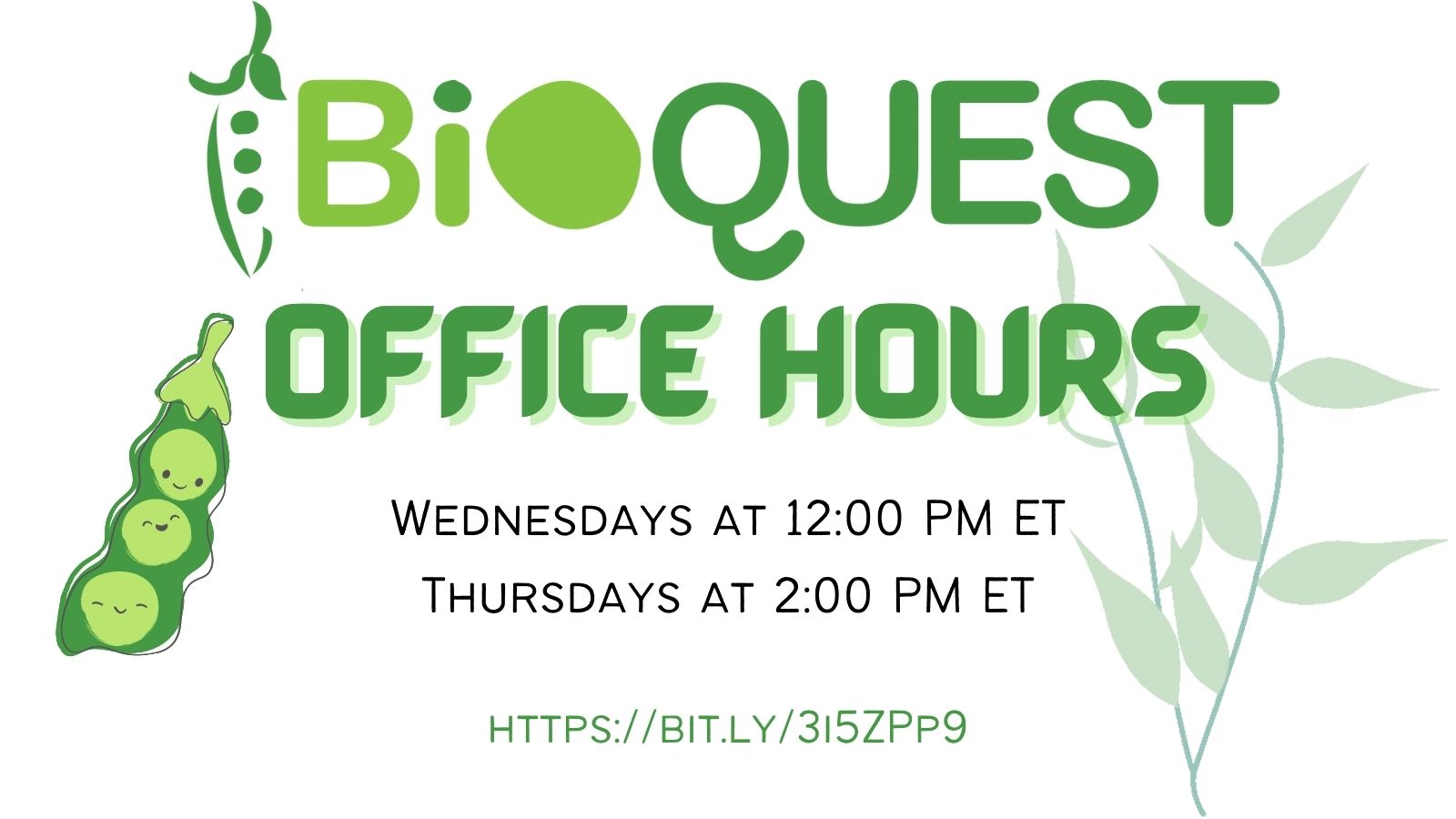
Our Partner Office Hours will continue this semester: Wednesdays at 12:00 PM ET and on Thursdays at 2:00 PM ET. Join us!
Have questions about how BioQUEST or the QUBES platform can advance your science education goals? Do you need help or advice about setting up your community on the QUBES platform? You can find the Zoom link here.
Inclusive STEM Teaching Project Course with BioQUEST
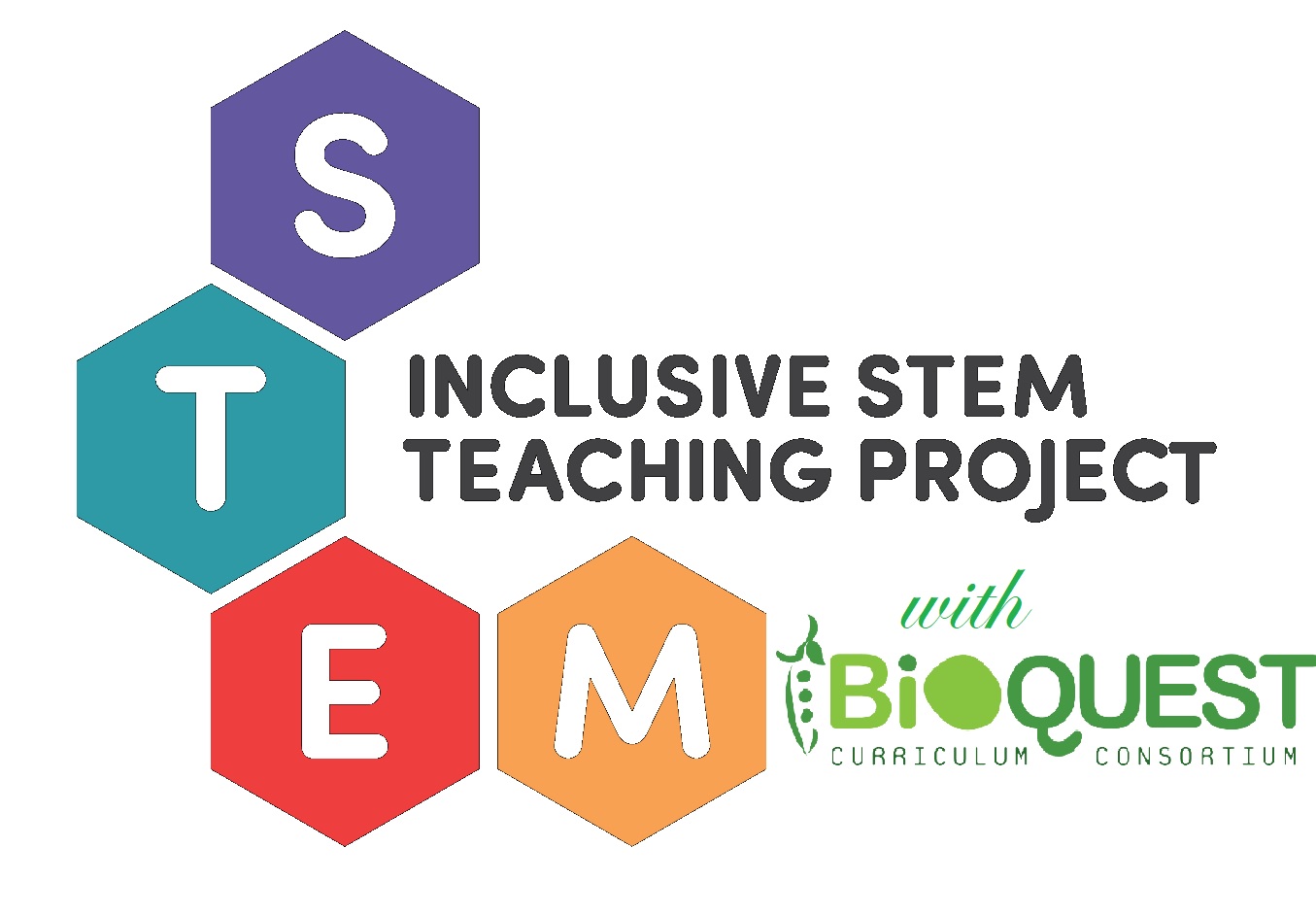
The Inclusive STEM Teaching Project is a 6 week asynchronous course designed to advance the awareness, self-efficacy, and the ability of faculty, postdocs, and doctoral students to cultivate inclusive STEM learning environments for all their students and to develop themselves as reflective, inclusive practitioners.
This group will meet 8 times over the course of 8 weeks, dive deep into the materials, and discuss how to include these practices in your own classrooms. Applications are due February 15. Space is limited, and the network is launching soon, so learn more and apply here.
Featured Publications
We are so proud of the amazing scholarly work that is coming out of our community. Congratulations to the authors and thank you for your work.
|
Ecological Applications, October 2022
“Exploring environmenATL justice and data analytics in an environmental studies lab course.”
Ethell Vereen (Ethell DOT Vereen AT morehouse DOT edu)
Subscription required or contact authors.
Many of us are motivated to introduce environmental / social justice topics and activities in our courses. This new article is packed with example activities and provides a detailed description of how to support environmental literacy by helping students apply environmental principles and concepts to the real-world. Many of those resources were developed by the “Social Justice and Community Change” working group and are available from the QUBES OER Library.
|
If you have published a paper related to your work with BioQUEST and/or the QUBES platform, please let us know (send the link to Molly)!
Partner News and Opportunities
SIMODE Expo
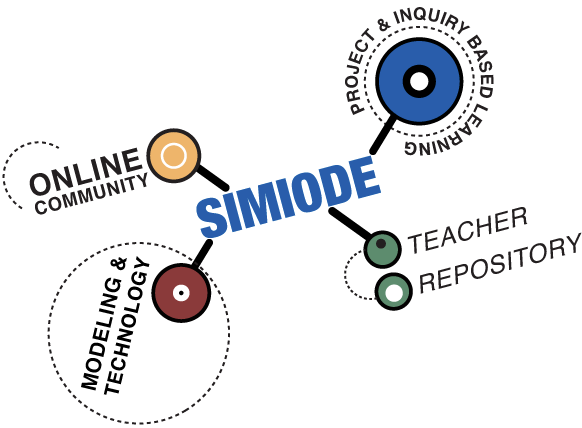
SIMIODE EXPO 2023 is an international online conference for faculty, students, and other parties interested in using modeling to motivate, teach, and learn differential equations. The three day conference goes from 1:00 PM (Eastern US Time) Friday, 10 February 2023, through 6:00 PM (Eastern US Time) on Sunday, 12 February 2023.
This conference is part of a Community of Practice in SIMIODE — Systemic Initiative for Modeling Investigations and Opportunities in Differential Equations. SIMIODE EXPO 2023 will offer a tapestry of issues for teaching differential equations using modeling and some broader mathematical topics, as well as great opportunities for social interactions with colleagues from around the world. Some sessions will be followed by breakout discussions on topics of interest to attendees. All presentation sessions will be recorded for post-conference viewing as in past EXPO conferences. Visit their website to find more information, submit an abstract, or register. The deadline for abstracts and registrations is January 31, 2023.
Join the Spring 2023 CourseSource Writing Faculty Mentoring Network!
 Have you developed new evidence-based teaching activities and/or lessons designed to be taught in biology or physics undergraduate education? Are you interested in working with a group of peers to write and prepare your Lesson manuscript for submission to the journal CourseSource? CourseSource is partnering with BioQUEST and QUBES to offer semester-long Faculty Mentoring Networks (FMN)! Meetings will be held on Wednesdays from 4:30 – 6:00 pm Eastern Time. The virtual kick-off will be held on February 8. Applications are due January 25, 2023. More information about the FMN such as eligibility and dates can be found at the Qualtrics sign-up page. Have you developed new evidence-based teaching activities and/or lessons designed to be taught in biology or physics undergraduate education? Are you interested in working with a group of peers to write and prepare your Lesson manuscript for submission to the journal CourseSource? CourseSource is partnering with BioQUEST and QUBES to offer semester-long Faculty Mentoring Networks (FMN)! Meetings will be held on Wednesdays from 4:30 – 6:00 pm Eastern Time. The virtual kick-off will be held on February 8. Applications are due January 25, 2023. More information about the FMN such as eligibility and dates can be found at the Qualtrics sign-up page.
2023 Gordon Research Conference and Seminar for Undergraduate Biology Education Research
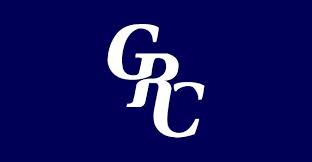 We are excited to announce the program for the 2023 Gordon Research Conference and Seminar for Undergraduate Biology Education Research is now online and applications are open. This year's theme is “A New Vision for Change: Re-imagining Biology Education Through Social Justice.” We are excited to announce the program for the 2023 Gordon Research Conference and Seminar for Undergraduate Biology Education Research is now online and applications are open. This year's theme is “A New Vision for Change: Re-imagining Biology Education Through Social Justice.”
We welcome your application for these events:
-
2023 Gordon Research Conference for Undergraduate Biology Education Research A New Vision for Change: Re-imagining Biology Education Through Social Justice June 25-30, 2023, Bates College, Lewiston, ME. Click here for more information and to register.
-
2023 Gordon Research Seminar for Undergraduate Biology Education Research June 23-25, 2023, Bates College, Lewiston, ME. Click here for more information and to register.
Share Your Story and Connect at the 2023 C*Science Conference
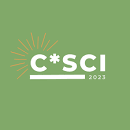 Share your story and connect with others doing citizen and community science at the 2023 C*Science Conference, May 22-26, 2023 in Phoenix/Tempe, Arizona. The call for individual presentations is now open! Share your story and connect with others doing citizen and community science at the 2023 C*Science Conference, May 22-26, 2023 in Phoenix/Tempe, Arizona. The call for individual presentations is now open!
The Social Justice Working Group associated with the Undergraduate Student Experiences with Citizen Science Network is looking for examples of participatory research methods (including but not limited to citizen science or community science) being used to teach about or enact social justice with undergrads in STEM classes. Please pass along any examples you know (from you, someone you know, published literature, etc.) using this form. We have some examples from the published literature but know there are more examples out there.
If the example is from your work, we encourage you to add a short description (or link) of what you did to the "Collections" on our Network webpage. Anyone can join the Network and access the resources here (once you are logged in). Contact Heather Vance-Chalcraft (vancechalcrafth@ecu.edu) with questions. Feel free to share with your social networks!
Deep Teaching Residency (DTR)
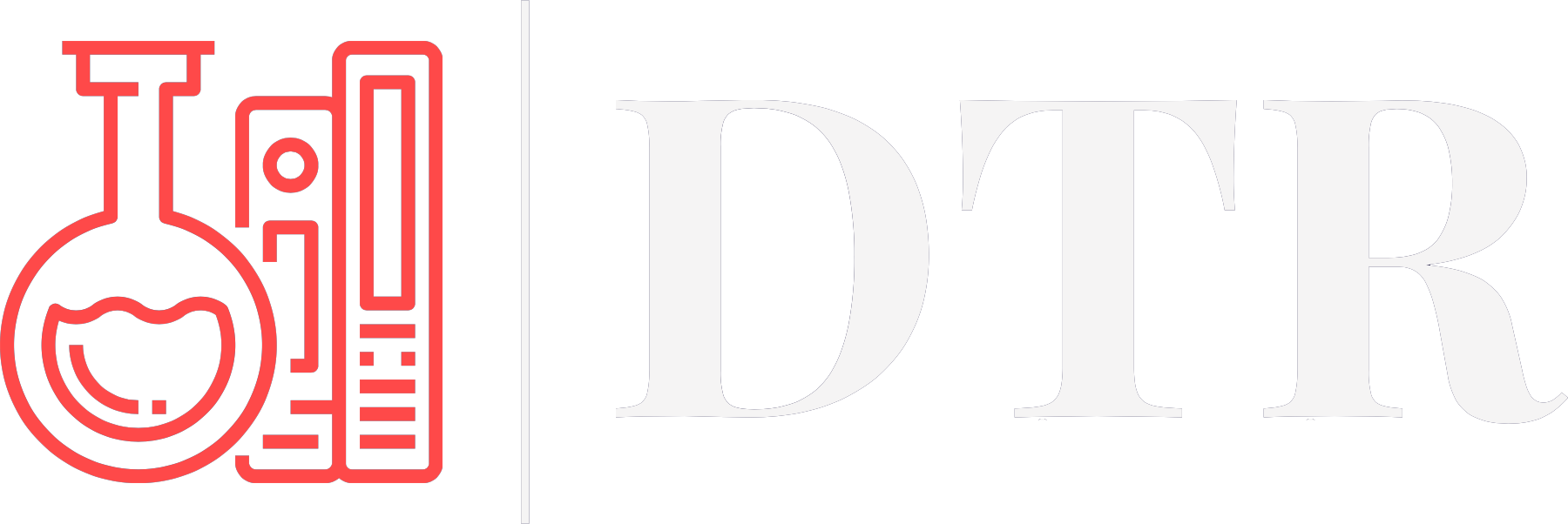 The Deep Teaching Residency (DTR) is a year-long faculty development program in inclusive pedagogy that aims to meaningfully transform faculty mindsets and practices. ‘Deep Teaching’ is an inclusive pedagogical philosophy that seeks to engage faculty in a critical evaluation of how instructor self-awareness, students’ personal histories, and broad social structures impact the development of an equitable pedagogy. The Deep Teaching Residency (DTR) is a year-long faculty development program in inclusive pedagogy that aims to meaningfully transform faculty mindsets and practices. ‘Deep Teaching’ is an inclusive pedagogical philosophy that seeks to engage faculty in a critical evaluation of how instructor self-awareness, students’ personal histories, and broad social structures impact the development of an equitable pedagogy.
Included in the year-long experience is a five-day immersive in-person workshop (contingent on health and safety measures related to COVID 19), where we come together as co-learners to examine, discuss, and apply inclusive teaching theories, models, and practices.
-
Prior to the workshop, participants will engage with and reflect on readings that provide a foundation for our time together.
-
Participants will then gather at the workshop for interactive sessions, large and small group discussions, time to work on the development of a project, and some free time to informally socialize or take time for independent self-care (See ‘Face-to-Face Workshop at a Glance’ below).
-
Following the workshop, participants will engage in a virtual learning community throughout the academic year to maintain connection, conversation, and support while implementing projects at their home institutions.
Learn more and apply here.
8th Life Discovery - Doing Science Biology Education Conference (LDC) Travel Awards
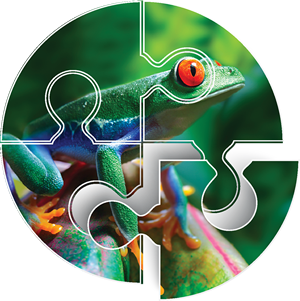 Registration for the conference is now open and earl-bird rates are available until February 24th, 2023. Registration for the conference is now open and earl-bird rates are available until February 24th, 2023.
To increase the diversity of participants and institutions, funds up to $1,200 pr more (for qualifying situations) are available to support educator travel and conference registration! These travel awards are made possible through support from the National Science Foundation.
Who Should Apply? We encourage educators who are from:
Apply by January 21, 2023, for priority consideration.
Other News
White House Announces 2023 Year of Open Science, Along with New Actions on Open & Equitable Research
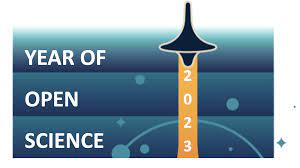 Today, the White House Office of Science and Technology Policy (OSTP) announced new actions to advance open and equitable research, including new grant funding, improvements in research infrastructure, broadened research participation for emerging scholars, and expanded opportunities for public engagement. OSTP is also launching the Year of Open Science, featuring actions across the federal government throughout 2023 to advance national open science policy, provide access to the results of the nation’s taxpayer-supported research, accelerate discovery and innovation, promote public trust, and drive more equitable outcomes. Today, the White House Office of Science and Technology Policy (OSTP) announced new actions to advance open and equitable research, including new grant funding, improvements in research infrastructure, broadened research participation for emerging scholars, and expanded opportunities for public engagement. OSTP is also launching the Year of Open Science, featuring actions across the federal government throughout 2023 to advance national open science policy, provide access to the results of the nation’s taxpayer-supported research, accelerate discovery and innovation, promote public trust, and drive more equitable outcomes.
Read the original press release, or visit the Guide to the Year of Open Science from NASA.
|